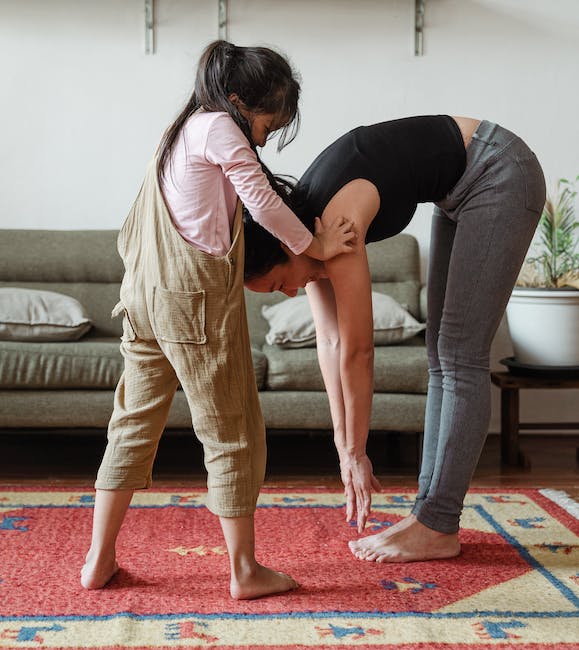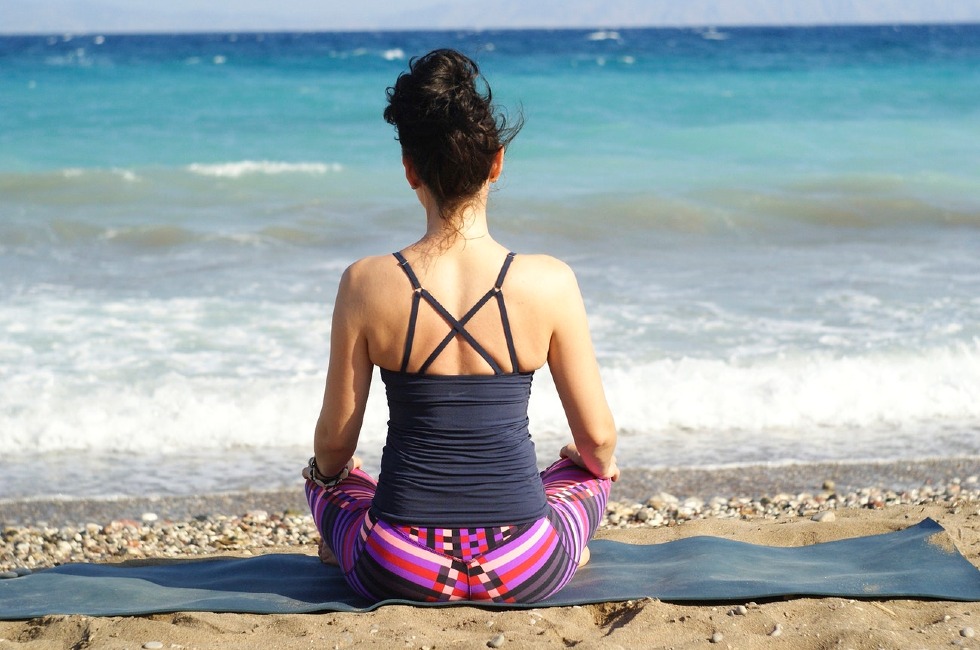
Fitness: The Benefits of an Active Lifestyle
If you’re someone who cares about their health and wellbeing, then no doubt you know that an active lifestyle is good for your health. Exercise and physical activity offer countless health benefits, ranging from improved mood and stress relief to increased strength and endurance. In this article, we’ll explore some of the main benefits of living an active lifestyle. Read on to learn about why exercise is important and how to get started on your fitness journey.
List of Content
- 1. Unlocking the Benefits of an Active Lifestyle
- 2. Why Fitness Is Important for Your Health and Wellbeing
- 3. Exercise as a Means of Stress Relief
- 4. Everything You Need To Know About Healthy Eating
- 5. Finding the Right Exercise Routine To Suit You
- 6. Enjoying the Rewards of an Active Lifestyle
- My Awnswers to your Questions
1. Unlocking the Benefits of an Active Lifestyle
There are countless benefits to leading an active lifestyle. Regular physical activity can improve your energy levels, your mood, and your overall health. In addition, it can help you make life-long friendships and become a more hands-on person.
A few of the potential benefits include:
- Improved mood and energy levels. Regular physical activity releases endorphins and serotonin, which counteracts stress and makes a person feel better both physically and mentally.
- Improved overall health. Activity helps to reduce risk factors such as high blood pressure and heart disease, as well as strengthening your bones.
- Social interaction. Participating in activities with other people brings the added bonus of making new friends and increasing feelings of self-worth and confidence.
- Enhanced problem solving skills. Being more active can help to improve cognitive abilities and problem-solving skills.
Of course, there are other benefits to leading an active lifestyle too. Exercise can help to reduce stress, control weight and blood pressure, and reduce the risk of developing type-2 diabetes. Regular physical activity is even associated with increased creativity and improved sleep quality.
To reap the many benefits of an active lifestyle, it’s best to get into the habit of doing something physical at least three times per week. It doesn’t have to be anything too strenuous; it can be as simple as a brisk walk or bike ride. You can also join classes at your local gym or recreation center to mix things up.

2. Why Fitness Is Important for Your Health and Wellbeing
Maintaining a healthy lifestyle is important for everyone. And focusing on physical fitness is a key part of that. Fitness can help you to perform at the best of your abilities, feel better, live longer, and increase your overall mental and physical wellbeing. Here are some of the key benefits of .
Increased Strength
Regular exercise helps to keep your body strong and agile. It increases muscle strength and bone density, which can help to reduce the risk of injury and illness. This can in turn help to improve balance, flexibility, and mobility.
Improved Mood
In addition to the physical benefits of exercise, there are mental benefits as well. Working out releases endorphins that can lead to improved mood. Increased physical activity can also help to:
- Reduce stress and anxiety.
- Boost confidence and self-esteem.
- Promote better sleep.
Higher Energy Levels
Exercise can help to increase your energy levels. It also helps to reduce fatigue and improve focus. This can make it easier to tackle everyday tasks and achieve goals.
3. Exercise as a Means of Stress Relief
Exercise is a great way to combat stress and clear your head. It not only helps your body, but also your mental health and wellbeing. Here are some of the top reasons why exercise is key for reducing stress:
- Releases endorphins: When you exercise, your brain releases hormones called “endorphins” which are feel-good hormones that give you a sense of wellbeing.
- Occupies your mind: Exercising diverts your attention from the stressor and allows you to focus on the activity itself.
- Improves your sleeping pattern: Exercise can help to improve your sleeping pattern, making it easier to relax and de-stress.
When it comes to de-stressing, not all exercise is created equal. The type of workout you should be doing will depend on your current mindfulness goals. For instance, activities like yoga, gentle swimming, or tai chi are great for calming your nerves. On the other hand, more vigorous activities like running or weightlifting can help to release pent-up tension and energy.
You can also use exercise as a form of self-care by taking a break from the world and engaging in an activity you enjoy. This way, you’ll be doing something beneficial for both your physical and mental health. Plus, you’ll feel refreshed and ready to take on whatever challenges come your way.
4. Everything You Need To Know About Healthy Eating
Portion Control – One of the most important aspects of healthy eating is portion control. This means controlling your portions and eating only enough to satisfy hunger and that the size of the portions matches the recommended portion size for someone your age and gender.
Variety of Foods – Eating a variety of different foods is key to healthy eating. This ensures that you’re getting a range of vital nutrients, vitamins, and minerals from the different foods. At least half of your plate should be made up of fruits and vegetables; the other half should be proteins, grains, and dairy.
Avoid Processed Foods – When possible, try to avoid processed and pre-packaged food. Generally, these are high in salt, sugar, fat, and empty calories. Try opting for fresh fruit and vegetables, lean proteins such as fish and poultry, and whole grains like oats and brown rice.
Make Smart Choices – Eating healthy doesn’t have to be boring. You can still enjoy treats once in a while, as long as they’re in moderation. Choose healthier options when it comes to snacks, like nuts, seeds, fruits, and vegetables. To top it all off, be sure to drink plenty of water throughout the day to stay hydrated!
5. Finding the Right Exercise Routine To Suit You
Finding the ideal workout routine to fit your requirements can be a daunting task. Getting the balance between intensity, duration and type of exercise right is an art that needs careful consideration. Here are some top tips to help get you on track.
- Know your body: The first step is to think about your body and your fitness level. This will help you decide what type of exercise is appropriate for you, what intensity level you will feel comfortable at and what frequency would fit in with your routine.
- Set a goal: Think carefully about what your goal is for getting fit. Do you want to build up your endurance, focus on certain muscles and increase strength or do you simply want to stay active and enjoy the feeling of exercising? Being clear on your goal is crucial so you can work out the right exercise for you.
- Give yourself variety: When embarking on an exercise journey, be sure to mix it up. Using a range of activities is an ideal way of breaking the monotony, preventing frustration and helping to keep motivation levels high.
- Be realistic: It is important not to overestimate what you can do. Increasing your exercise intensity too quickly can cause injury. Setting realistic and achievable targets is essential in preventing injury and ensuring a safe and positive fitness journey.
With careful thought and consideration, is possible. Knowing what your body is capable of, setting achievable goals and ensuring variety are key to enjoying your exercise routine and ensuring your success.
6. Enjoying the Rewards of an Active Lifestyle
These days, leading an active lifestyle has become more popular than ever. With regular physical activity, it can bring countless health benefits to your life, including improved mood, enhanced energy levels, and greater overall wellbeing.
Another reward of an active lifestyle is a positive body image. Smart nutrition and consistent exercise can do wonders for your self-esteem, helping you to feel better about the way you look.
Speaking of nutrition, regular exercise can also benefit your diet. When you exercise, you’ll naturally want to take better care of your body by eating healthier foods. This improved diet can also leave you feeling more energized and more productive.
At the end of the day, the benefits of staying active are almost endless! From a healthier heart and lungs, to lower blood pressure, an improved mood, and better focus, here are a few of the rewards you can enjoy:
- Increased strength and stamina
- Enhanced flexibility and coordination
- Higher energy levels
- Calmer mind and better sleep quality
- Healthier skin tone
- Weight management and improved body composition
My Awnswers to your Questions
Q: What are the benefits of an active lifestyle?
A: Regular physical activity can help you to maintain your weight, reduce your risk of various health conditions, such as heart disease, stroke, some cancers, diabetes, high blood pressure, depression, and anxiety. It can also improve your mood, give you more energy, and help you to relax.
Q: How much exercise do I need to do?
A: According to the Centers for Disease Control and Prevention, adults should aim for at least 150 minutes of moderate-intensity aerobic activity each week or 75 minutes of vigorous aerobic activity. But if you’re just starting out, it’s important to build up slowly to avoid injury.
Q: What if I don’t like to exercise?
A: Fortunately, there are many ways to incorporate regular physical activity into your life without having to go to a gym. Taking the stairs instead of the elevator, riding your bike to work, or going for a walk during your lunch break are all small but effective changes that you can make to boost your activity levels.
It’s clear that an active lifestyle offers some great benefits! From the improved physical health to the mental and emotional wellbeing, making an effort to keep active can make a great difference in your life. So why not start today to make a commitment to physical activity and see how it can positively transform your life.


